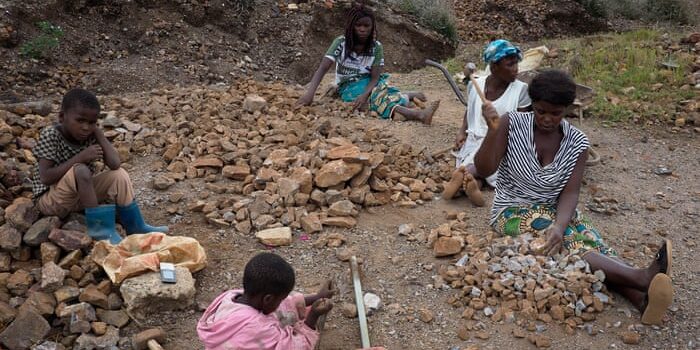Anglo American sued for alleged lead poisoning in Zambia
Diversified miner Anglo American (LON: AAL) has been sued in South Africa by a group of Zambian women and children alleging the company caused widespread lead poisoning from a mine it owned until 1974 in the northern city of Kabwe.
The class-action lawsuit, filed at South Africa’s High Court on Wednesday by law firms Mbuyisa Moleele and Leigh Day, seeks both compensation for about 100,000 people and a clean-up of the area.
LAWSUIT CLAIMS ANGLO AMERICAN FAILED TO PREVENT POLLUTION IN KABWE, AFFECTING MULTIPLE GENERATIONS
“Generations of children have been poisoned by the operations of the Kabwe mine, originally known as Broken Hill, which caused widespread contamination of the soil, dust, water and vegetation,” the firms said in a statement. “The main sources of this poisonous lead were from the smelter, ore processing and tailings dumps.”
The lawyers argue that Anglo American’s South African subsidiary is liable as it was responsible for the mine from 1925 to 1974 and that this was when the majority of the pollution was caused.
The lead operation, about 100 kim (60 miles) north of Zambia’s capital, Lusaka, was shut in 1994, but output during Anglo’s ownership accounted for about two-thirds of the lead that now contaminates the area, the law firms said.
They argue the company had “a duty of care” to protect existing and future generations of residents of Kabwe.
The firms also claim that Anglo failed to warn state-owned ZCCM, which took over the mine in 1974, of the lead hazard.
Anglo American said in an emailed statement it would review the claims and “take all necessary steps to vigorously defend its position.”
Devastating effects
Lead is considered a highly poisonous material and, according to the World Health Organization, there is “no level of lead exposure that is known to be without harmful effects.”
Exposure to high levels of lead could impair growth, damage organs such as the liver and brain and increase the risk of miscarriage, a recent report by Human Rights Watch showed.
A study of 1,190 people in Kabwe called exposure levels there “alarming”. The authors said they had found average blood lead levels were above what it’s considered high by US authorities in all but one of 13 districts in the town.
LEAD POISONING, ESPECIALLY IN CHILDREN, HAS DEVASTATING EFFECTS ON NEUROLOGICAL DEVELOPMENT
In the most affected area, researchers found average levels nine times above the US threshold.
The scientists noted lead poisoning, especially in children, has devastating effects on neurological development and can cause clinical signs such as convulsions and coma.
The Zambian government, with support from the World Bank, kicked off in 2015 a $60-million initiative aimed at rehabilitating the Kabwe region, among others.
ZCCM said at the time that the program “aimed at mitigating the impact of lead poisoning on human health and the environment,” from 1994 to 2010.
Lawyers for the plaintiffs, however, said most of the pollution happened when the mine was part of Anglo American South Africa.
source:mining.com
![]()





